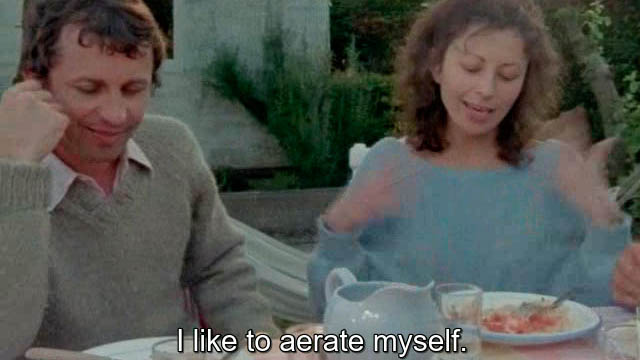Vegetarianism, like so many liberal virtues, has, today, less to do with the benefits to human-kind and the planet than it does about the mind and culture of vegetarians themselves.xxxxxxxxxxxxxxxxxxxxxxxxxxxxxxxxxxxxxxxxxxxxxxxxxxxxxxxxxxxxxxxxxxxxxxxxxxxxxxxxxxxxxxxxxxxxxxxxxxxxxxxxxxxxxxxxxxxxxxxxxxxxxxxxxxxxxxxxxxxxxxxxxxxxxxxxxxxxxxxxxxxxxxxxxxxxxxxxxxxxxxxxxxxxxxxxxxxxxxxxxxxxxxxxxxxxxxxxxxxxxxxxxxxxxxxxxxxxxxxxxxxxxxxxxxxxxxxxxxxxxxxxxxxxxxxxxxxxxxxxxxxxxxxxxxxxxxxxxxxx
This is not to say that eating vegetarian is bad, that vegetables aren't fantastic, or that there isn't merit to many of the morality arguments that vegetarians will make over the course of years and years of knowing and living with them and, even, being an interloper in the thing oneself. But it is to say that if one has more than a superficial experience with the culture of vegetarianism, broadly, as well as the psychology of the vegetarian, specifically, it becomes hard to defend eating vegetables through affinity with the arguments and lifestyles of its adherents as they manifest themselves in society today1.
In the first place, meat is edible. It is not something that should cause full-body spasms of gag and vomit to expel. It is understandable to not like all meat, to maybe not even like most meat; but to dislike and feel poisoned by any and all meat cooked in whichever way with whatever sauce belies the peculiarity of mindless diet preferences specific to the spoiled child.
Secondly, vegetarianism makes sense within the context of a well-ordered life. Outside of predominantly vegetarian cultures that provide this structure already, it requires a lot of experimentation and eating bad, unappealing food over the course of a long time. One must relearn to cook and to find new approaches to cooking. And since the recipes originating in vegetarian cultures are usually more complex than simple meat on a plate, one must be able to invest more time in their preparation. As such, it requires an increase in orderliness and management in the kitchen: additional spices, additional grains, additional assembly of vegetables, time and complexity of preparation and organization of the chef, all of which are natural to affluence.
Thirdly, diet should adapt to its surroundings in order to validate the intelligence of the human eating the food. Vegetarianism is usually justified on the legitimate point that factory farming of animals is a disgusting practice (and it is) and that eating meat is inextricably bound-up with environmental degradation and destruction(it is). However, insisting on a diet in every context irrespective of the degree of its violation of the vegetarian's morality (e.g., removing all traces of meat even, for instance, in less-developed countries where factory farming practices aren't normal) exposes the diet's function as identity though its insistence on perpetuating a personal decision.
Fourthly, the vegetarian places unreciprocated, unidirectional demands on social situations and is aloof with respect to their being fulfilled. It doesn't matter to the vegetarian how imposing they are on the social situation: no demand, or frequency of a demand is a problem for them. The vegetarian's philosophy and praxis for social engagement argues that to the extent that simple, easy modifications are possible, do them; otherwise, to the extent that more are necessary, more of the time, it will be necessary for the vegetarian to seek out new friends and social circles in which to avoid feeling awkward. Whether or not this happens is given the appearance of inconsequentiality by the vegetarian. This is why the vegetarian and the social contexts they produce are fundamentally sociopathic in the way they are willing to manipulate intimacy towards the fulfillment of their personal aims produce intimate lives cut-up and fractured under the weight of a calculus of invented demands.
In sum, what living with vegetarianism exposes is, with respect to the above, the spoiled-childish, affluent-fastidious, path-dependent sociopathy of the vegetarian. Which is more precisely described as, generously, a bourgeois mania/neurosis, or, less so, a hyper specified form of incommunicable autism. It is the product of the boredom and lack of demands of the affluent liberal existence on one that compels them to create order for themselves and to then invest their very identity into the preservation of that order at all costs. It is a lifestyle indicator for the holder that becomes subsumed within a post-structuralist philosophy that authorizes and valorizes the particularity of its holder's perspective and underpins its persistence/insistence. And it is masochistic in the way that any indiscretion, no matter how small, that a choice (of diet) might give rise to in any random situation, is transformed into self-denial(of nutrients, social interaction) for the sake of perpetuating a single (historical) decision and the identity, ideology, and philosophy with which it has become structurally bound-up.
And so, while the morality of the vegetarian is admirable, while the appeal of the varied spiced and constructed food is undeniable, when one considers vegetarianism, one must consider the socio-political context that they will be reinforcing through their own participation, which is also to evoke the possibility of a form of these practices disassociated from their function as a lifestyle choice bound-up with a very specific form of petty/petite bourgeois liberalism2.
Footnotes
What follows is based on a consideration of the more generous, communicable vegetarian and not the militant, overtly political operator, and should not be construed or slandered as blanket dismissal of the fundamental value of vegetarianism. ↩
The films of Eric Rohmer remind one of the value of a liberalism that is every day becoming lost to itself. His films evoke the historical significance of the particularity of the liberal worldview and its philosophy that is, in these films (many of which are 50+-years old), connected to profound truths about human existence. The above still-image comes from his film The Green Ray/Le Rayon Vert(1986), and a conversation the protagonist has over dinner in defense of her vegetarianism that, particularly in the overall context of the film, makes a more convincing case for the meaning and significance of liberal choice than most of what is argued today. ↩
